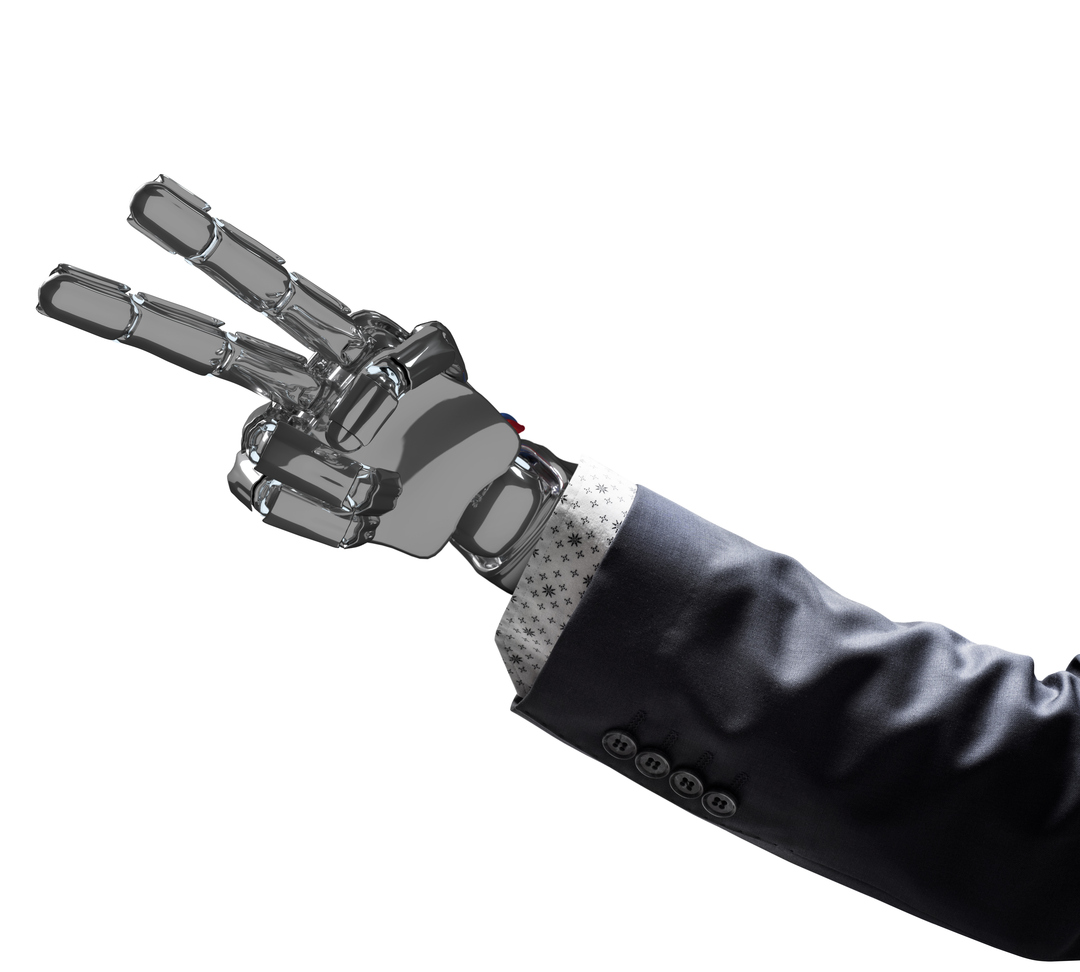The amount of data that we deal with on a daily basis is staggering. It’s easy to take it all for granted when you’ve been living in front of a mobile device filled with productivity apps and company spreadsheets. Our ability to process the sheer volume of information surrounding us is reaching a threshold; the human brain is only capable of doing so much at any given moment.
This is where Artificial Intelligence (AI) is starting to play a bigger and more extensive role in our lives. Advances in AI and machine learning are being used for so much more than creating human-like robots.
AI systems have also become integral to standard business practices, especially when it comes to sales. With so many new sales channels – social media, in-person, telephone, website, and mobile – sales representatives need all the help they can get with keeping track of client data, appointments, sales pipeline information, lifecycle tracking, and even drafted sales contracts.
Looking forward to 2018, we see this being the year that many sales departments realize just how useful CRM is. But we also foresee AI significantly shifting how CRM providers shape and design their programs for easier use and efficiency. Here are a few of the key improvements we’ll see in business sales automation practices.
Better Information Leads to a Better Sales Experience
Providing your salesforce with more information makes it easier for them to close deals with their clients. The devil is in the details, especially when it comes to high-profile business interactions.
Historically, it’s been a hassle for sales representatives to get or access all of the data they need. Every bit of information regarding the client, their needs, and what your products offer improves the chances of making a successful transaction, but it has to be provided in the right way at the right time. Too much information creates overload, while too little stifles conversions or causes targeting issues.
CRM solves these concerns by automating much of the information storage, organization, and delivery process. It also tells salespeople precisely what to expect out of incentivization programs and how to link past and present partner payouts effectively.
Even if the sales rep gets what they need without CRM, there is still the question of whether that information is accurate or up to date. It’s is an age-old problem that’s plagued every business since the beginning of sales as a concept, and it’s only gotten more difficult to solve. Everything changes so quickly in the modern business landscape that projections from two weeks ago could be obsolete in half that time. A business representative’s ability to obtain precise information in real time is the key (and the bottleneck) to their success.
New CRM technologies have built-in specifically-designed powerful AIs that significantly reduce pain points while paving the road to success. This year’s AI-backed solutions will give sales reps more access to vastly improved data as time goes on through progressive profiling. This advanced data collection capability relies on AI that automates and interprets data for easier digestion. Adding in AI to the mix, we see systems that do more to empower CRM setups with better data flow, easier processes, and more empowered tools to help sales reps to make their sales pitches more engaging.
Assistance With Dynamic Problem Solving for More Engaging Sales Interactions
Data collection techniques have drastically improved, especially over 2017, but most of the commonly employed methods are limited in scope. Many programs just fetch the information they’re designed to search for and do little else. They’ll typically dump the data into storage or output it into an easily digestible format, but beyond that, most data collection programs don’t change their behavior or adapt to new situations. Raw data is only useful if one can draw the correct conclusions and data visualizations with it.
Here, too, we will see AI take on a bigger role. AIs sift through the information they gather and extrapolate advanced conclusions. Compare that to regular programs that can only output results in the format they were programmed to – formats that may be virtually non-integratable with newer marketing automation or financial forecasting platforms.
More importantly, AIs think critically about and process the knowledge they obtain to lighten the load on sales reps. They approach data with less bias, no emotional baggage, and more “hard facts.” The AI can provide the sales representative with a list of recommended selling strategies based on those facts.. From there, the rep decides which approach is the most receptive given their real-time interaction with the client.
AI also eliminates the need for sales reps to concern themselves with drawing the correct conclusions from pages of raw data and charts. Instead of wasting time worrying about every nit-picky detail, they can focus more on customer interactions and closing the deal. Businesses with an AI-powered CRM can get more deals settled in less time with fewer setbacks.
AI Automation Makes Administrative Tasks Easier
Everyone has a routine with their workflow. Some aspects of the workflow are more complicated than others – especially those that require a human touch for correct implementation. However, there are at least a few things that an automated system can take care of faster and more efficiently than humans: email automation, data filtering, and order processing are just a few. Cutting down on time spent on updating orders, logging contact info, and other menial data entry tasks allows a sales rep to reallocate that time to more productive activities – like closing deals.
AIs can do more than just act as a glorified automated keyboard. They can act more like personal secretaries or assistants, sometimes even being backed by chatbots for spoken interaction. Activities like broadcasting regular updates to clients, arranging appointments and meeting times, and replying to commonly asked questions sent in from web forms – the right CRM with AI can handle all of this for you in seconds.
AIs can also learn from a user’s behavior to correct mistakes and suggest improvements; this includes both customer behavior and salesforce behavior. They’re exceptional at learning from past experiences to predict patterns. A CRM backed by AI can aid a sales representative by providing insight into their clients’ personal information and behaviors to more easily seal a deal. This includes how they behaved during their lifecycle, how often they complained, which pitches were more likely to succeed, or even which social media posts they interacted with.
There are some moral questions when it comes to collecting personal data. How much information is too much, and what is appropriate for an AI to fetch? These are developing areas of study, and unfortunately, the answer can differ customer to customer. Still, having an AI at your side gives you an edge no matter what limitations we decide to impose on an AI’s data collection ability for the sake of privacy.
Improves Collaboration Between Sales Teams
Advances in CRM infrastructure appear to be mostly about the long-term, but there are a few things that will change this year. One of the big changes is the blurring of lines between everyone’s tasks in the workplace. More automation and integration of core tasks into a centralized network means everyone will be doing a little bit more of everything. Removing the tedium from everyday tasks lets the entire workforce be more productive and focus on human-driven tasks, but only if they’re on the same page. There will be fewer fine lines that separate one department from another – including marketing and sales – but CRM and marketing software will facilitate that by ensuring seamless, tightly controlled integrations.
Instead of waiting for humans to prod them along, CRM systems with AI or machine learning will identify who needs what information and when. This will improve collaboration between marketing, sales, finance, and other mission-critical departments. Sales rep will access exactly what they need and no more. Marketing will influence sales without holding them back due by drowning them in data. When it comes to data everyone needs, it will be easy to access, filter, organize, and visualize from anywhere.
Furthermore, AI and machine learning will extrapolate on the data presented to assist your business with making decisions on best business practices that are shared across the workplace. AIs are becoming the central core that connects workforces and improves flow between them, allowing for higher productivity levels and increased sales volumes if properly utilized.
President and founder of DVI, Aaron Boerger realized early in life that he had a unique combination of x-ray vision and business acumen for seeing the weaknesses that held businesses back – and the ability to define the right tools, technology and strategy to make them stronger.
From founding a successful technology support business in his early teens, to serving as Chief Operating Officer for several companies in the financial, technology and marketing industries, Aaron has developed a reputation for reinventing technology implementation tactics – and the willingness to tell people not what they want to hear, but what they need to hear, in order to achieve success without overwhelm.
Aaron will always go the extra mile to provide the accountability and support his clients need to achieve their goals, yet isn’t afraid to tell them when they are doing something wrong.

